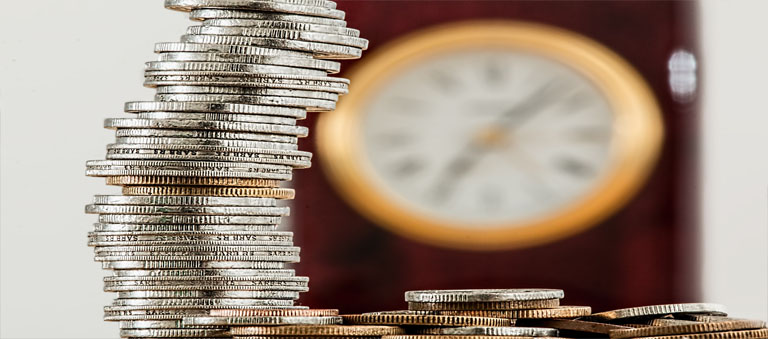Month: April 2021
When are Superannuation Pensions available to Younger People?

Superannuation pensions are usually for older, retired people who reach the legal age for access of their superannuation. There are, however, two younger groups of people for whom being paid a superannuation pension comes in to effect because of either a serious illness or accident or because of the death of a spouse.
In the first case, if you are badly injured in an accident and are permanently incapacitated or suffering from a terminal medical definition, then you can gain access to your own superannuation at an earlier age than retirement. A superannuation pension is therefore provided to you to help you deal with your new life situation.
In the second case, if your spouse dies under retirement age – and you, too, are under retirement age, then you may be entitled to access the superannuation of your deceased spouse. Your superannuation would remain locked up until retirement criteria is met by you, but your partner’s superannuation would be treated differently now that it is you – whatever your age – who would have access to it in the form of a pension.
There are challenges to your access of a deceased spouse’s retirement fund:
First, a superannuation pension uses up some or all of the surviving partner’s ‘transfer cap’, the maximum lifetime contribution in to a retirement phase pension. From 1 July 2021, the cap will increase from $1.6 million to $1.7 million.
So, if a life insurance payout is added to a superannuation balance, then the total superannuation balance could exceed the transfer balance cap for the surviving partner. Thus, the amount over $1.7 million (from 1 July 2021) would need to be paid out entirely to the estate, to the surviving partner or to another beneficiary.
In such an instance, the surviving partner’s own superannuation fund would have no transfer balance cap left and their fund would continue to accumulate until being paid out as a lump sum only.
Any death benefit pension means a tax exemption on some, or all, of its investment income may be claimed, just as with any retirement phase pension. It may be possible to sell assets or invest in assets that pay hefty incomes because there will be minimal or no tax implications either way.
Other tax considerations include the surviving partner’s own plans to make ‘non-concessional contributions’, for example, being disrupted. Depending upon the surviving partner’s superannuation balance at financial year end, non-concessional contributions might be nil, especially once the deceased spouse’s balance is taken in to account.
Finally, the pension payments to the surviving partner will be taxed at normal marginal rates unless the surviving partner and the deceased spouse were both over 60 years old at the time of the spouse’s death.
Should your spouse die, and you are both below retirement age, making plans for a superannuation pension from your deceased spouse’s fund and for your own ongoing fund is important to avoid any financial pitfalls. To determine the effect of tax on the surviving partner’s fund, it is best to seek expert financial advice.
How can YML help?
Talk to our YML Super Solutions Team today to see how YML Group can assist you with early access to a superannuation pension. For more information, view our website and contact us on (02) 8383 4400 or by using our Contact Us page on our website.
Small Business – Fees & Charges Rebate – Up to $1500

The impact of the COVID-19 pandemic continues to stunt the growth of many a small business. The NSW Government has devised a rebate to offer some financial relief to assist small business owners and sole traders to start or stay in business.
Eligible businesses can receive up to $1500 in rebates to offset the cost of specific NSW state and local government fees and charges incurred during the running of a business.
Who is eligible for the $1500 rebate?
Sole traders and small business owners who:
- Are an ABN-registered business operating in NSW; and
- Are registered for GST; and
- Have an annual turnover of $75,000 minimum; and
- Have a total Australian payroll below the NSW Government payroll tax threshold in 2020-21 of $1.2 million.
What can be claimed?
Whilst running a business, NSW state and local government fees and charges befall most small business owners and sole traders: costs such as council rates, outdoor seating fees, event fees, food authority and liquor licences and tradesperson licences.
Eligible applicants can lodge multiple claims – as these types of expenses arise and are paid – until the $1500 rebate cap is reached.
The NSW Government stipulates that for a fee or a charge to be eligible, it must be due and paid from 1 March 2021.
What cannot be claimed?
There are some costs that are excluded from the rebate and these are outlined as:
- Commonwealth Government charges
- Any government premises rental amounts
- Commonwealth Government taxes
- NSW Government taxes
- Any fines or penalties
- Fees and charges incurred with the purpose of changing a small business owner or sole trader’s behaviour, such as but not limited to parking space levies (Transport for NSW), compliance and capacity risk loadings (Liquor & Gaming NSW), environmental prevention and clean-up notice fees and general trading licence fees.
To see what fees and charges are included and excluded, please refer to https://mcusercontent.com/68ee476273ad93057985adb07/files/6e1f357e-e7a4-495c-8bb6-97c9daf09c65/eligible_fees_and_charges_small_business_rebate.pdf
Application Process
You only need to apply once via your MyServiceNSW account, uploading all relevant documentation to prove your eligibility. Thereafter, you may claim as many times as you need to reach the $1500 rebate cap.
You will need to keep a record of your invoices and receipts showing your payments for each of your claims.
This NSW Government rebate will be available until 30 June 2022 and YML Group’s experienced Accountants can help you determine your eligibility, record fee and charge payments and assist with your rebate and claim applications. To engage YML to manage the process for you, go to https://app.hellosign.com/s/C14bVnW3
How can YML help?
Talk to our YML Chartered Accountants Team today to see how YML Group can assist you with NSW Government rebates. For more information, view our website and contact us on (02) 8383 4400 or by using our Contact Us page on our website.
Cryptocurrency – What are the Taxation Implications?

Money or fiat currency, legal tender issued by a government, is no longer the only ‘currency’ in the markets. Cryptocurrency, a digital asset using encryption to generate additional units and verify transactions, operates independently of a central bank or a government and, therefore, is subject to taxation when it is tendered, bought or sold.
What impact trading cryptocurrency will have on your annual income tax return will be determined by the ATO and this financial year, the ATO has its focus on cryptocurrency traders, so it is worthwhile understanding some important points about how the ATO handles cryptocurrency and taxation.
The cryptocurrency space is evolving and the ATO’s rules and laws may change. For now, here is a summary:
Cryptocurrency includes Bitcoin and other crypto- or digital currencies with similar characteristics to Bitcoin. The profit, calculated in Australian dollar (AUD) amounts, you make when you exchange cryptocurrency for fiat currency or spend cryptocurrency on goods and services may be deemed taxable by the ATO.
Taxable cryptocurrency profit is determined in different ways:
1. Income derived from trading cryptocurrency as a business or as a professional cryptocurrency trader: cryptocurrency profit may be treated as business or as personal income and therefore be subject to a relevant personal or business income tax.
If your business accepts cryptocurrency as payment for goods and services, then the value calculated in AUD must be declared as part of your business’s income.
If your business uses cryptocurrency to make purchases for your business, then the value calculated in AUD may be tax deductible, based on market value eligibility for any deduction.
If your business pays an employee using cryptocurrency, then a salary sacrifice would mean the payment is classed as a fringe benefit and taxation would be determined subject to the Fringe Benefits Tax Assessment Act 1986. Without a salary sacrifice arrangement, the payment would be classed as normal salary or wages and PAYG taxation on the value calculated in AUD would apply.
In short and in general, cryptocurrency profit made through business dealings will be assessed by the ATO and considered to be income where the activity (exchange) occurred in a business-like manner or with a commercial nature.
2. Personal gain where cryptocurrency resulted in a profit through personal investment: cryptocurrency profit from an investment classed as an asset or property may therefore be subject to capital gains tax (CGT).
If you have bought cryptocurrency for the purpose of an investment and you dispose of that investment in ways such as:
- Selling to someone or an entity
- Gifting to someone or an entity
- Trading or exchanging one cryptocurrency for another cryptocurrency
- Converting to fiat currency
- Buying goods or services
If, however, you hold your cryptocurrency for more than 12 months before selling or trading it, you could be entitled to a 50% CGT discount when you dispose of any of or all your cryptocurrency holding.
Personal use of cryptocurrency, such as purchasing Bitcoin or a similar cryptocurrency for the purpose of buying an item or paying for a personal service online, is generally not regarded by the ATO as an investment, an asset or property. Be aware that the longer you hold cryptocurrency, the more likely it will be classed as an investment.
Make sure that you declare all your cryptocurrency transactions to the ATO, just in case there is a tax implication on a transaction.
Minimising your tax on cryptocurrency
Consider the following tips whilst remaining compliant with ATO rules and laws:
Hold your cryptocurrency for 12 months or longer, so that you might be eligible for a CGT discount.
Plan your intention for and use of cryptocurrency before buying and research the corresponding and applicable tax implications.
Maintain accurate records of your cryptocurrency transactions, so that you will be able to readily disclose your personal or business income and any profit gains or losses. Remember, cryptocurrency transactions are traceable.
Record-keeping includes noting:
- Transaction date
- Cryptocurrency value (in AUD) on the date of transacting
- Transaction purpose and trading party details
- Purchase and/or transfer receipts
- Exchange records
- Costs-of-transaction records
- Digital wallet and private key details
How can YML help?
Talk to our YML Chartered Accountants Team today to see how YML Group can assist you with your cryptocurrency taxation. For more information, view our website and contact us on (02) 8383 4400 or by using our Contact Us page on our website.


